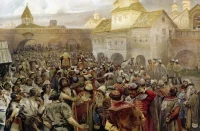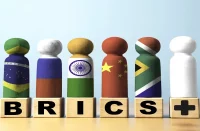There is nothing more vague and more promising in politics than the fight against corruption. Modern extravaganzas, such as Olympic Games or soccer World Cups, are not only great shows but also great irritants for concerned citizens who always believe they could find a better use for the money spent on such events. So, Russian president Vladimir Putin must have envisaged the future difficulties when, seven years ago, he proposed the candidacy of the Russian city of Sochi for the 2014 winter Olympics. The specific difficulty in Russia’s case was that here the alarmist signals about the games’ costs and other problems came not so much from inside Russia but rather from abroad.
First the former Georgian president Mikheil Saakashvili suddenly felt the deep pain of the aboriginal population of Sochi, which had been relocated from there in the times of the Romanov empire back in the nineteenth century. Saakashvili started a broad campaign in the international media. Recently a Canadian newspaper the Ottawa Citizen joined the fray, saying that Putin was “trying to downplay the region’s bloody history”.
The inconvenient truth is that in Australia’s Melbourne, US Salt Lake City and Canada’s Calgary, the indigenous populations had been removed on a much greater scale than in Russia’s Sochi. In Salt Lake City, not just the Native Americans, but many of the Mormon pioneers had in fact been destroyed by federal troops. This though did not prevent Salt Lake City from hosting the 2002 Winter Olympics. Every one of the original people from all these Western Olympic cities were forced to ‘get lost’ at just about the same time as Sochi’s indigenous population, where only a part of the local Adyghe people moved to the Ottoman empire after Russian troops arrived in the mid-nineteenth century. So, canceling the games in the Caucuses mountains for their “bloody history” and not canceling them in the mountains of Utah for the same reason would have looked too much like double standards.
After the themes of the “bloody past” and the presumed mistreatment of sexual minorities in Sochi were somewhat exhausted by reports from Sochi’s gay bars and president Putin’s recently announced readiness to personally meet gay stars in Sochi, the Western media had nothing to concentrate on but the presumed high cost of the Olympics.
The international media adopted the exaggerated price tag of $50 billion; “the highest in Olympic history”. This huge sum, whose sources can be traced back to the Russian anti-corruption “crusaders” with vested political interests, worked as a kind of perverted advertising for the games. If something cost that much, then it would probably make sense to watch it.

The truth is that the $50 billion figure does not stand up to even the mildest scrutiny, unless of course we count every road or airport built in Russia over the last 7 years as an indirect preparation for the Sochi Olympics. The Russian vice-premier, Dmitry Kozak, who was in charge of overseeing the work of Olympstroy, the umbrella group of companies running construction in Sochi, yesterday estimated the total expenses at 6.5 billion dollars. That’s 214 billion rubles in Russian money. Kozak also specified that only one half of this amount was provided by the state, the remaining 50 percent being represented by private investment.
This, of course, will do nothing to cool the hot heads of foreign correspondents, who have already chosen Sochi as one of the main targets for their pre-game criticism. Hopefully, the games themselves will provoke more positive than negative emotions.
Source: Voice of Russia














Comments